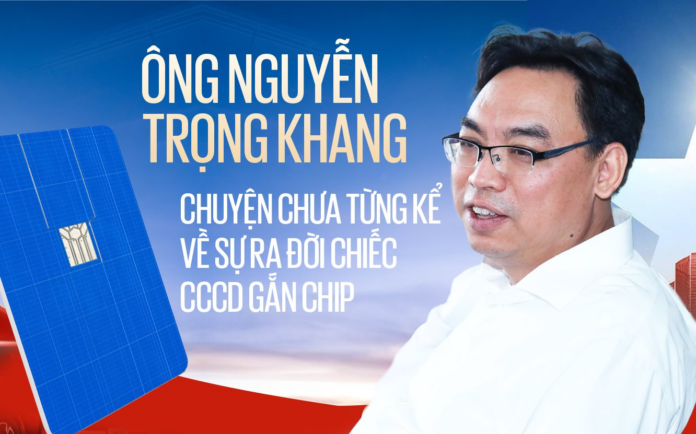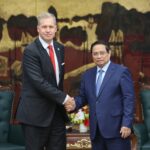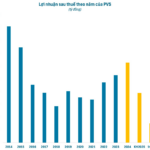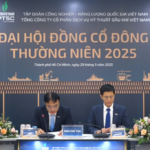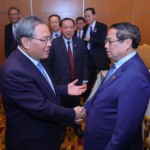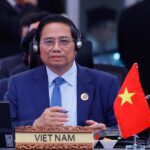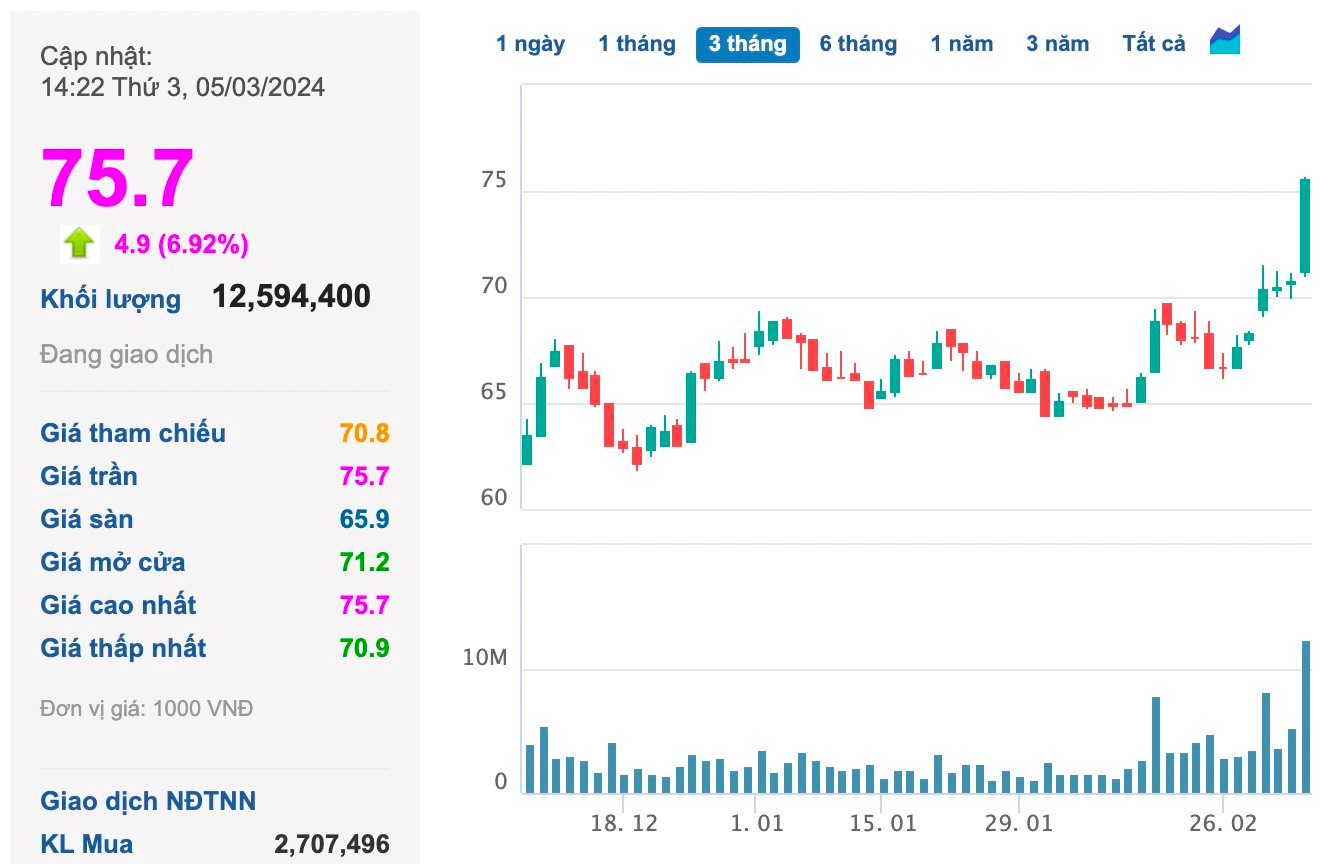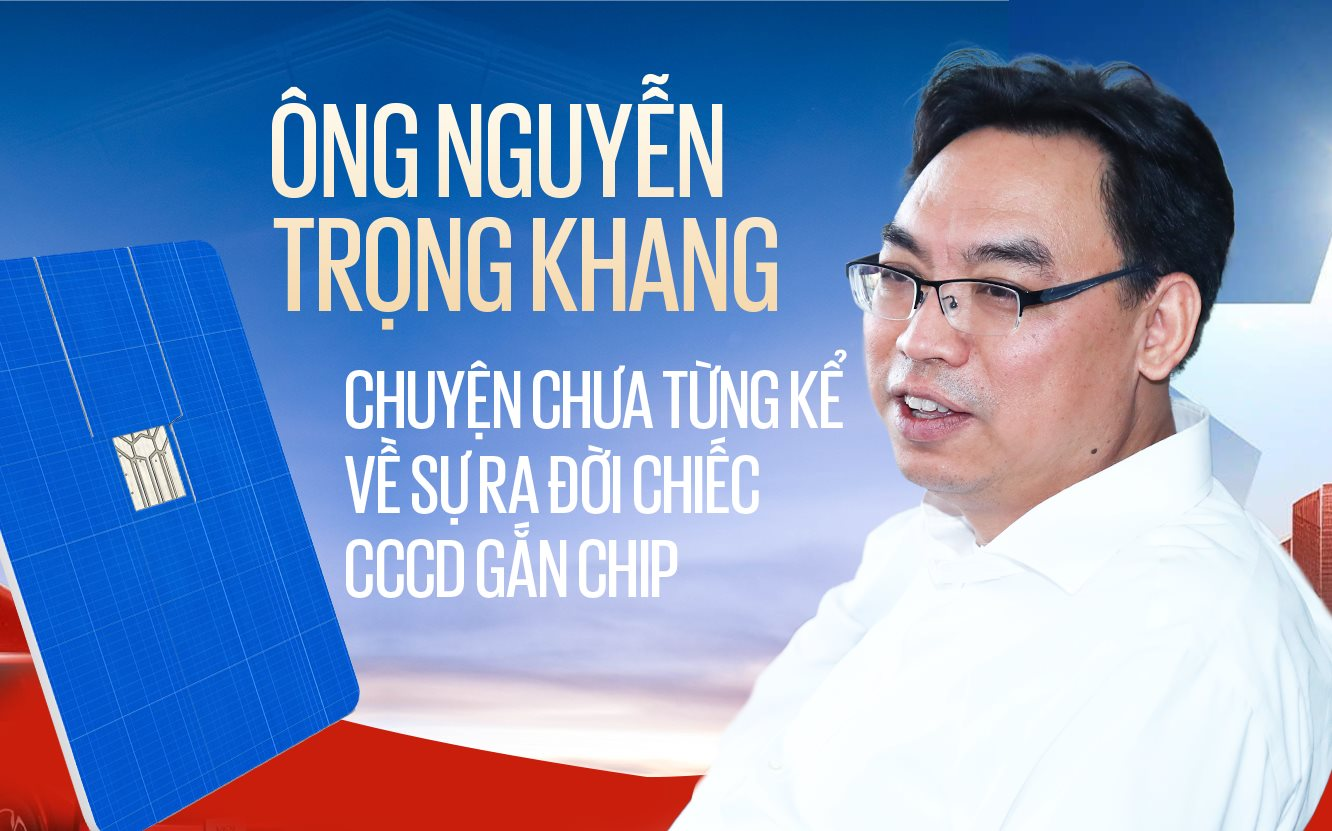
Mr. Nguyen Trong Khang, founder and chairman of MK Group, shared the story behind the company’s journey in developing cutting-edge smart card technology in Vietnam.
Mr. Nguyen Trong Khang, founder and chairman of MK Group, recounts the 18-year journey to develop the core technology for smart cards with embedded chips. The company invested millions of euros and spent five years working with European labs to ensure the security of their innovative smart cards. This experience laid the foundation for their future projects, including AI cameras, thermal imaging chips, the OneID for ASEAN initiative, and ambitious ideas in AI, semiconductors, and defense technology. Mr. Khang believes that with the right investment and approach, Vietnamese companies can create world-class technology products.
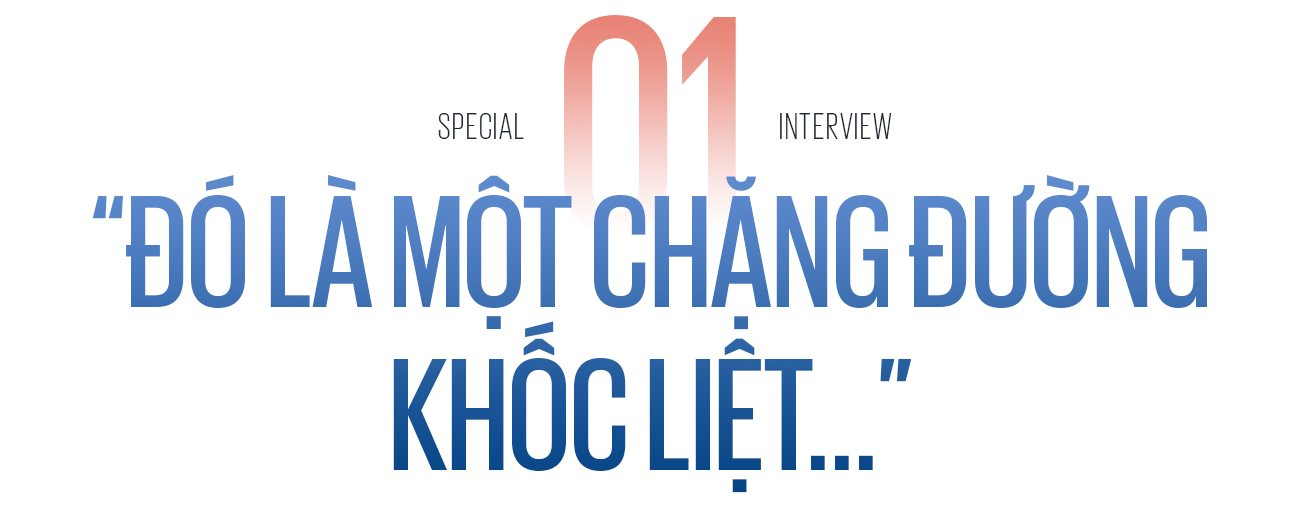
MK Group’s smart card is ranked among the top 5 in the world and is the best in the ASEAN region.
MK Group’s smart card with an embedded chip is said to be among the top 5 in the world and the best in the ASEAN region. What sets this smart card apart and how did it achieve such a remarkable ranking?
Nguyen Trong Khang:
While the world relied on passwords, MK Group’s smart cards utilize biometrics and a unique matching technology. By swiping the card on an NFC-enabled phone, users can easily access their data without the need for passwords or an internet connection. This enhances security and convenience, allowing the smart card to serve as a key to various online transactions.
This innovative approach is a testament to Vietnamese creativity. Any entity wishing to use this technology must obtain a license from MK Group, highlighting the company’s intellectual property rights and potential for growth.
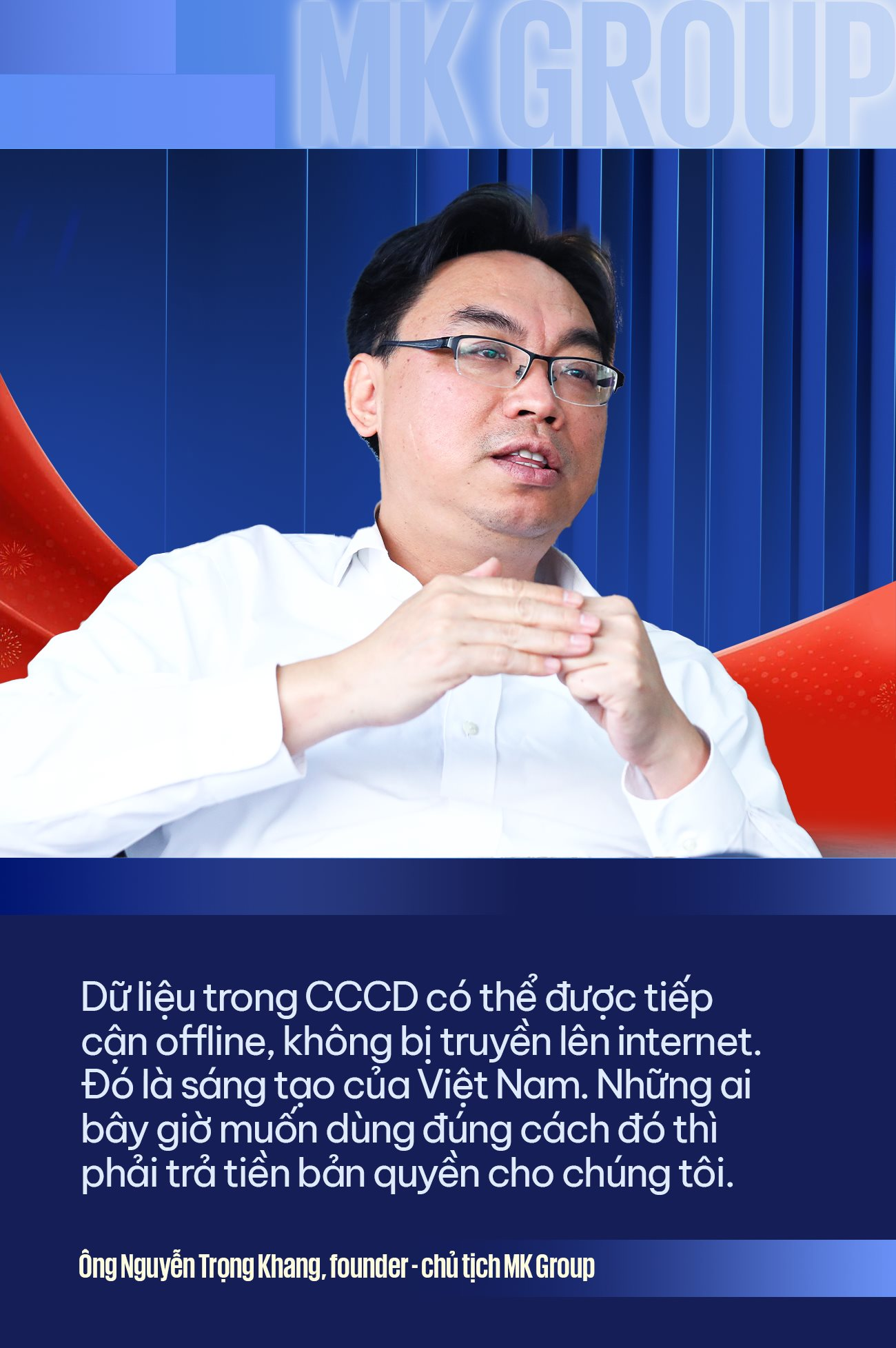
Mr. Nguyen Trong Khang shares the long journey of research and development that led to their advanced smart card technology.
How long did it take for MK Group to develop this cutting-edge smart card technology?
Nguyen Trong Khang:
It took us 18 years to master the core technology by attracting talented foreigners, investing in, and acquiring Vietnamese businesses. Many local startups lack the necessary experience, and our journey was no exception. We persevered through challenges and invested significant time and resources to perfect our smart card technology.
When we decided to develop smart cards according to ICAO standards, someone suggested that we purchase a $300,000 tool to check if the chip met the required standards. Instead, we chose to develop our own programming and testing processes, which took several years to perfect.
After achieving success, we sent our smart cards to European labs and spent millions of euros to have white-hat hackers attempt to breach our security. They employed both software and hardware attacks, even cutting the tiny chip into layers to extract data. This rigorous testing process helped us identify vulnerabilities and strengthen our security measures.
It was a challenging and grueling journey, but we persevered. It took five years and countless heart-stopping moments to finally bring our smart card to life.
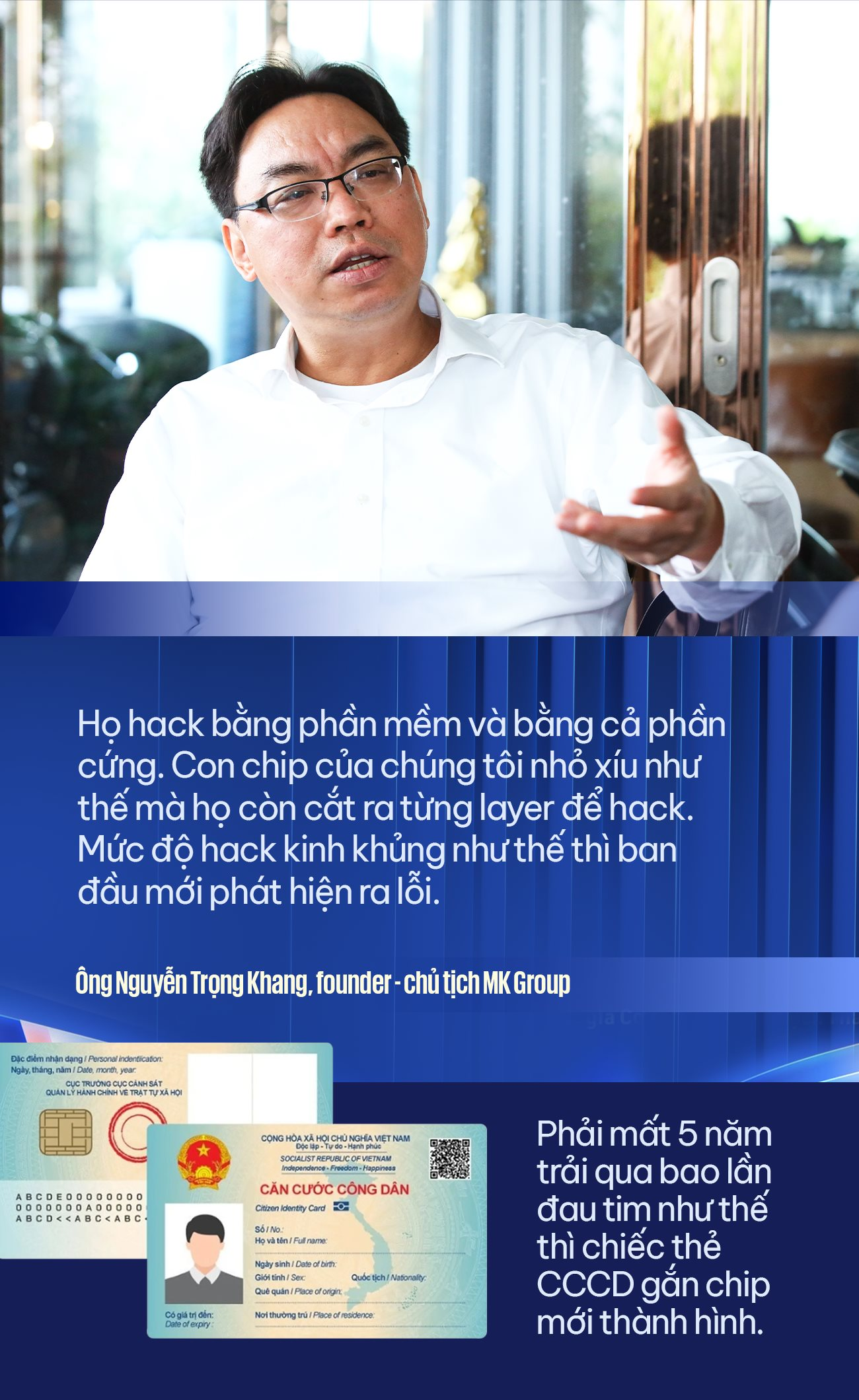
MK Group collaborated with the Ministry of Public Security to implement a biometric identification model at Noi Bai International Airport in Hanoi.
Your smart card technology was recently implemented at Noi Bai International Airport in Hanoi, in collaboration with the Ministry of Public Security. Can you tell us more about this project and its impact on passenger experience?
Nguyen Trong Khang:
Yes, we partnered with the Ministry of Public Security to introduce a new model using VNeID, streamlining the check-in process for passengers. Launched on April 28, this model allows passengers to check in online, proceed directly to security, and verify their identity using facial recognition technology.
VNeID authentication replaces the need for physical documents, enhancing security and privacy as the system only stores facial data points. This reduces the need for airport staff and helps prevent congestion. Singapore has successfully implemented a similar system.
However, this project utilizes VNeID rather than the data stored directly on the smart card. Can you elaborate on this?
Nguyen Trong Khang:
An interesting aspect of our smart card technology is the combination of distributed and centralized databases. In theory, a breach in a centralized database could lead to a massive data leak. Therefore, the Germans take an extreme approach, storing data only on the smart card itself. In contrast, India chooses to push all information to a national database, investing heavily in biometrics rather than smart cards. However, this approach is costly and requires significant infrastructure development.
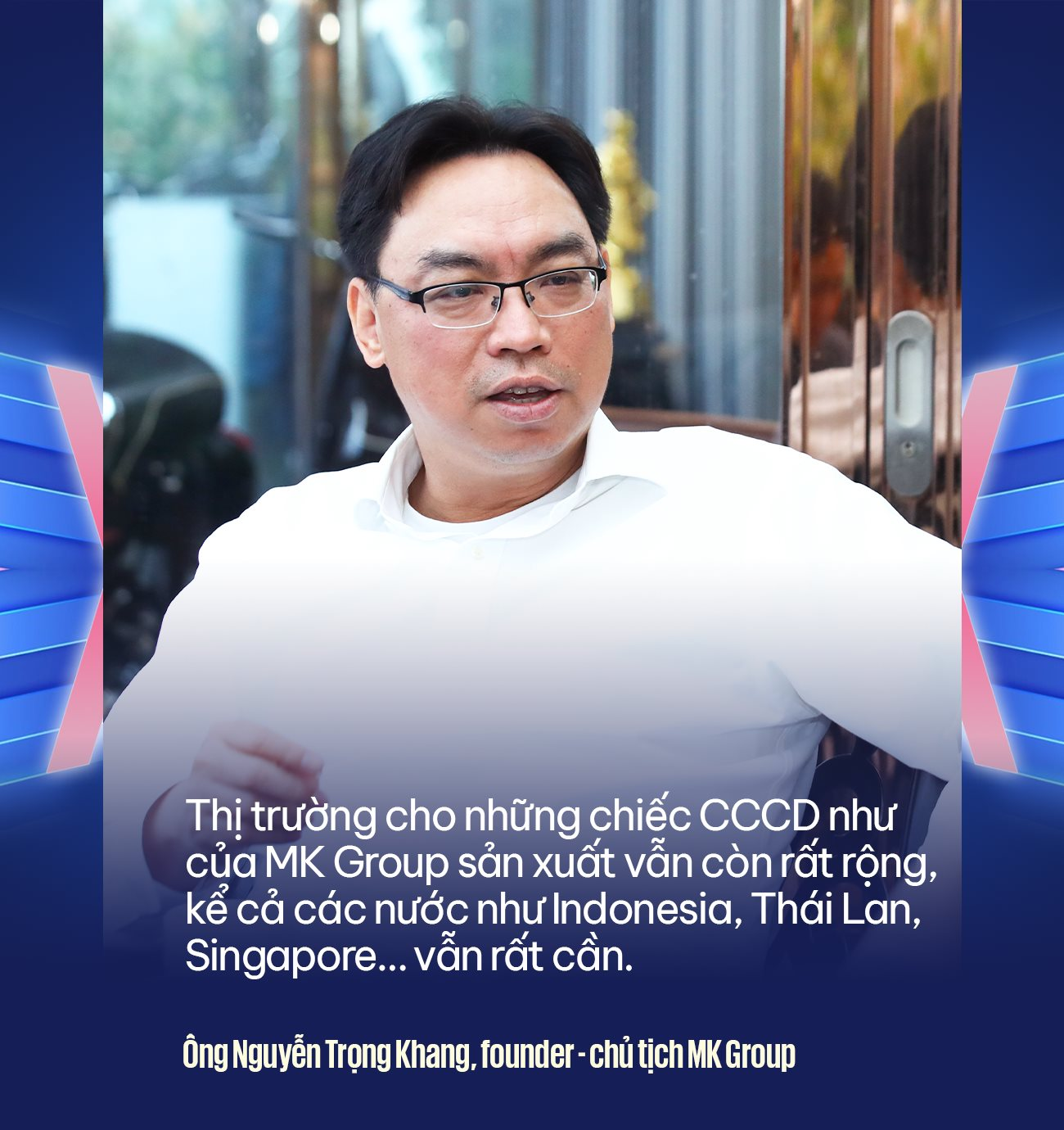
Vietnam has learned from the experiences of other countries and adopted a hybrid approach that combines centralized and distributed systems.
Vietnam has learned from these experiences and adopted a hybrid approach. We have a mix of centralized and distributed systems, giving users control over their data security. Our smart cards provide secure identification without the need for extensive infrastructure investments.
Another key advantage is our utilization of smartphones as card readers. Five to ten years ago, smartphones revolutionized the industry. Our approach eliminates the need for separate card readers, addressing three critical factors for the success of electronic transactions: affordability, accessibility, and availability.
This innovative approach gives MK Group a competitive edge, even in countries like Indonesia, Thailand, and Singapore, which are still in the process of transitioning to smart cards.
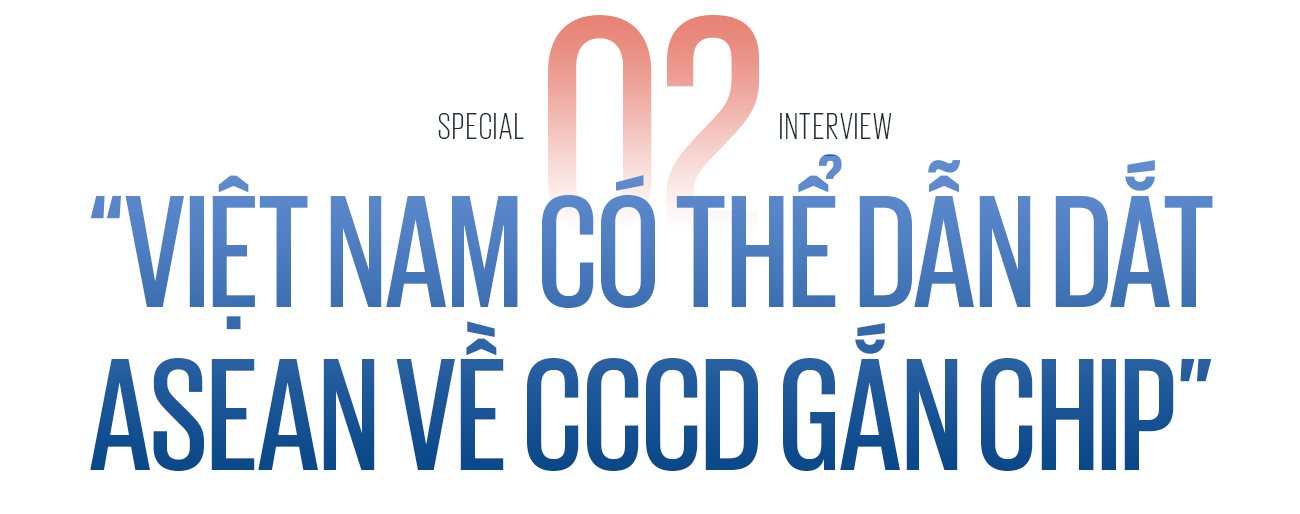
Mr. Nguyen Trong Khang shares the inspiration behind his OneID for ASEAN initiative, aiming to facilitate seamless travel and digital transactions within the region.
Your smart cards have gained recognition within the region. Was this a driving force behind your OneID for ASEAN initiative, which gained traction at the ASEAN Future Forum (AFF) earlier this year?
Nguyen Trong Khang:
The idea is not new. In 2023, at the 21st session of the National Assembly’s Standing Committee, Comrade To Lam, then Minister of Public Security, mentioned that ASEAN countries were working towards unifying identification documents. This would enable Vietnamese citizens to travel within the bloc using smart cards.
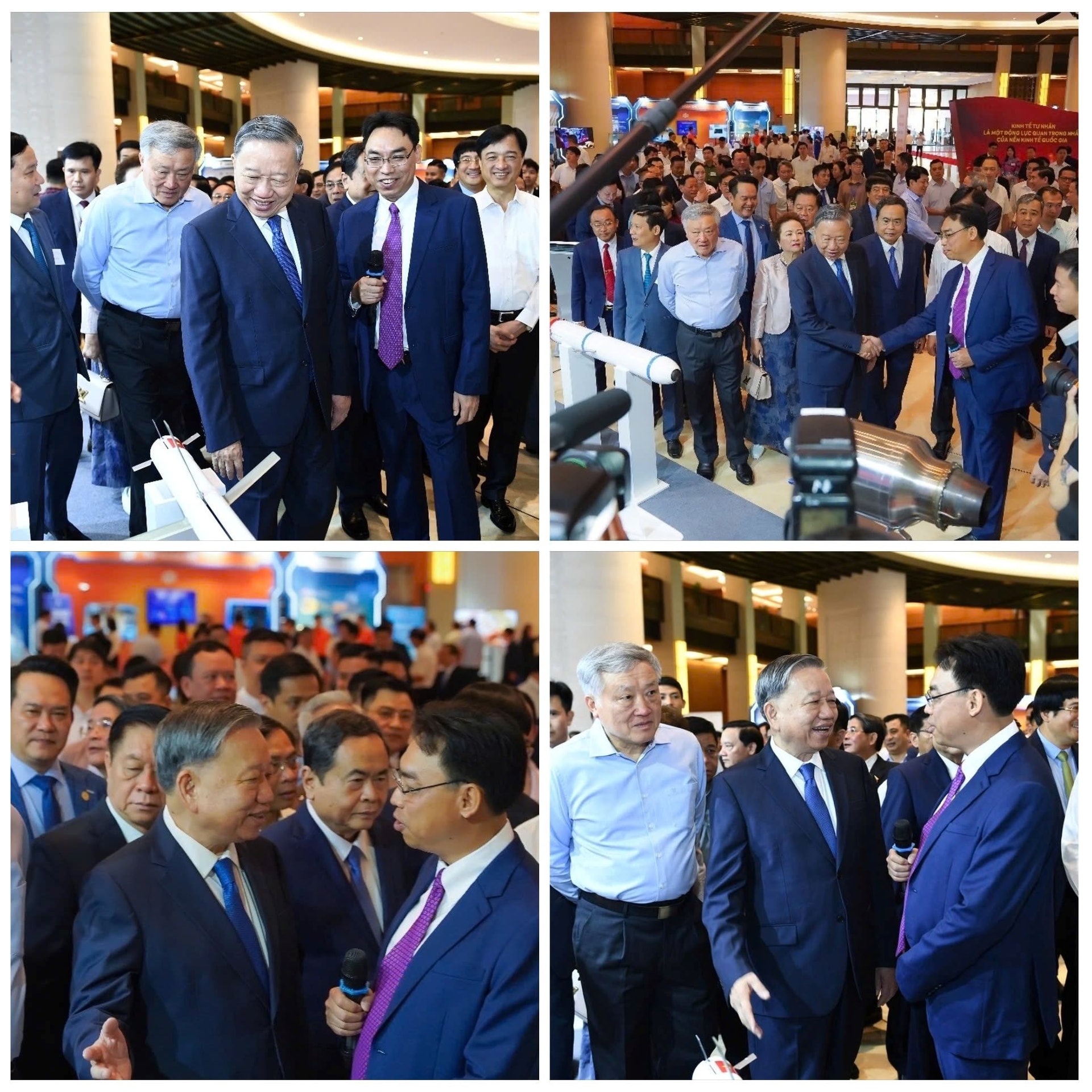
Mr. Khang presents military equipment produced by MK Group to Comrade To Lam, the General Secretary of the Communist Party of Vietnam.
The European Union has already implemented a similar system. My proposal aims to facilitate seamless travel, digital transactions, and business registration within ASEAN without the burden of extensive paperwork. Citizens would be able to access healthcare, education, and government services in any ASEAN country. Additionally, it would enhance security for online services, financial transactions, and reduce identity fraud.
With over 460 million digital consumers, ASEAN’s digital economy is projected to exceed $300 billion in 2025 and surpass $1 trillion by the end of the decade. I believe that ASEAN should accelerate its digital transformation, and my proposal aligns with the goals of other global blocs.
Soon, the Vietnamese Ministry of Public Security will transfer the technology for smart cards with embedded chips to Laos. This marks a significant step in Vietnam’s export of digital transformation and technology transfer under Resolution 57. MK Group is proud to accompany the Ministry of Public Security as a contractor in this endeavor.
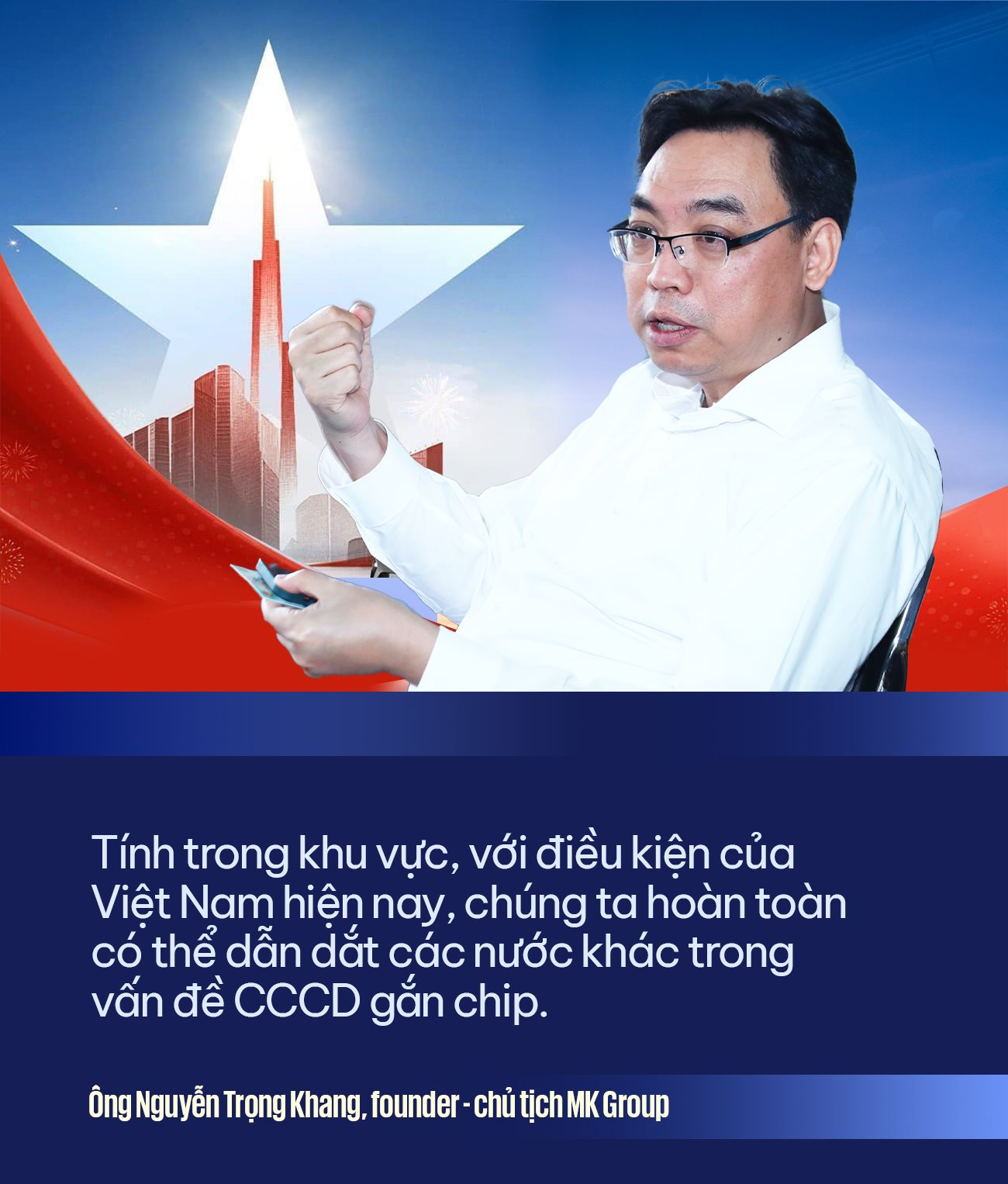
Mr. Khang emphasizes the potential for the smart card model to be replicated across the ASEAN region, improving efficiency and reducing costs.
This model has the potential to be replicated across the region. Countries like Indonesia and the Philippines face similar challenges as Vietnam did before adopting smart cards with embedded chips. Singapore’s identification system relies on three factors and does not utilize chips, resulting in a cumbersome and costly management process. Even Singapore is considering adopting a model similar to Vietnam’s. Despite their small population and advanced economy, there are still individuals who cannot afford smartphones for identification verification.
Given Vietnam’s current capabilities, we are well-positioned to lead the way in smart cards with embedded chips within ASEAN. This is an opportunity to showcase our technological prowess and contribute to the region’s development.
Another important aspect of this initiative is digital signatures. Vietnam has not yet utilized digital signatures, which are included in the smart cards. As a result, individuals buying and selling properties still incur significant costs for notarization, physical signatures, and fingerprinting.
Implementing digital signatures would revolutionize online transactions and potentially reduce the size of the administrative apparatus. Extending this to the entire ASEAN region would bring tremendous benefits.
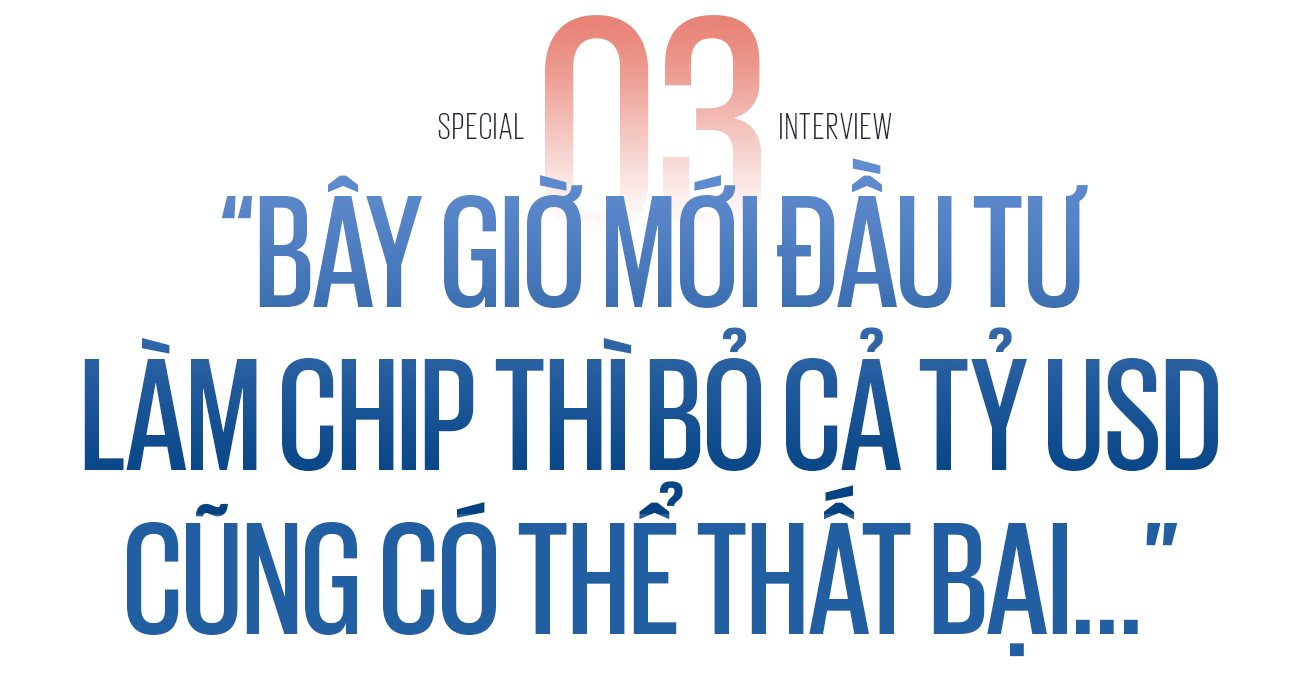
Mr. Nguyen Trong Khang shares MK Group’s plans for the future, including the possibility of entering the semiconductor industry.
MK Group has handled every aspect of smart card production except for the chip itself. Do you plan to venture into chip manufacturing in the future?
Nguyen Trong Khang:
I am open to the idea if there is a large enough market and long-term demand. Currently, we produce tens of millions of smart cards annually. If that number exceeds 100 million, we would have the capacity to invest in chip manufacturing.
So, you are considering entering the semiconductor industry, which is currently a hot topic globally. What are your thoughts on this?
Nguyen Trong Khang:
We focus on meeting market demands while staying within our capabilities. In the semiconductor industry, we are investing in Infrasen, a company that produces thermal imaging chips with a wide range of military and civilian applications. Exporting these chips requires special permits due to their sensitive nature. The higher the chip’s sensitivity, the more expensive it becomes, with some chips costing thousands of dollars each. We believe MK Group can offer competitive pricing and is well-positioned in this market.
Beyond civilian and commercial applications, we are one of the first private companies in Vietnam to venture into high-tech defense technology, a challenging but strategically important field. MK Group is committed to R&D to produce precision-controlled defense equipment with dual-use capabilities, serving both security and civilian purposes. Examples include AI security cameras, thermal imaging chips, and biometric identification platforms for border control and transportation hubs.
Regarding the semiconductor industry, what opportunities do you see for Vietnam to capitalize on, as some have described it as a “4,000-year opportunity”?
Nguyen Trong Khang:
Any Vietnamese company investing billions of dollars in chip manufacturing at this point is likely to fail. Competing globally in this industry is a mistake. I visited Taiwan and met with companies that were on par with TSMC a decade ago but are now on the brink of collapse. Even Intel is facing challenges. This industry is extremely competitive, and the product life cycle is incredibly short. The leading companies have been preparing for at least 30 years to reach their current position.
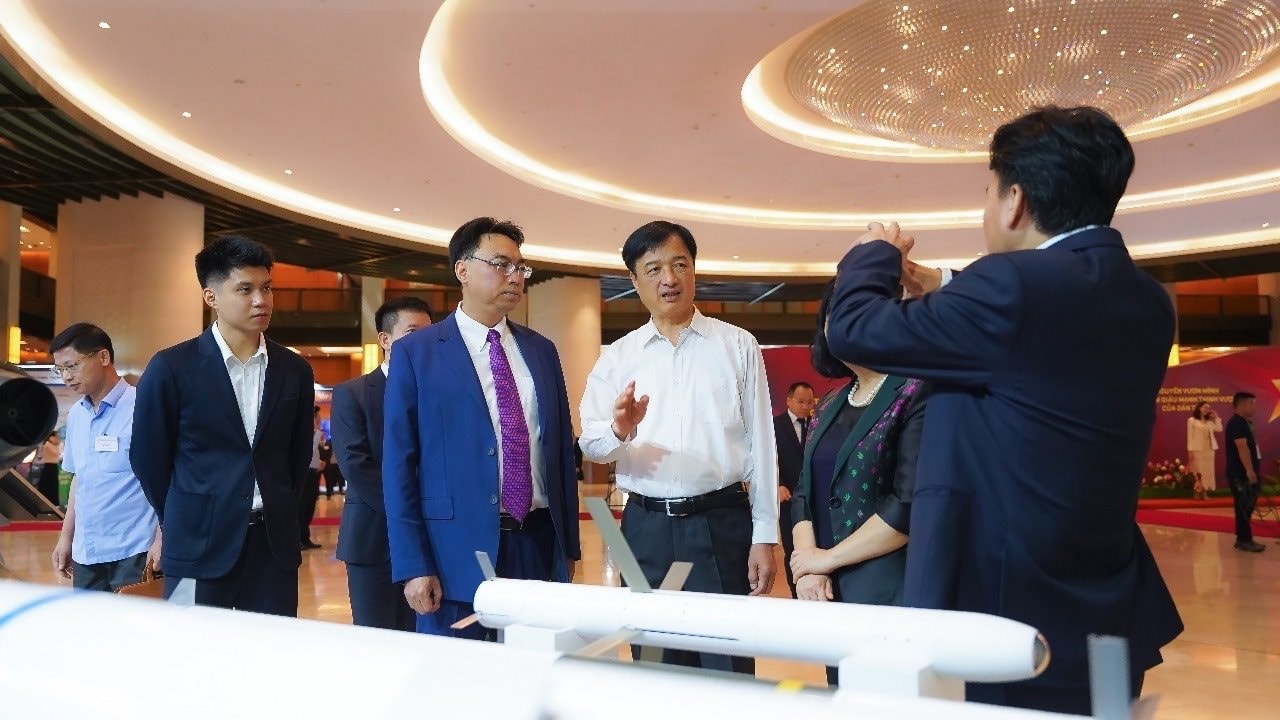
MK Group has mastered core technologies in smart digital security, AI cameras, and defense technology.
However, there is a silver lining. Japanese and Korean companies have invested in Vietnam to establish semiconductor facilities in Hoa Lac and Thai Nguyen, which are now operating successfully with a predominantly Vietnamese workforce. Initially, we can focus on chip packaging and assembly, gaining experience and building our capabilities.
We may not need a TSMC-like company, but we can collaborate with global technology leaders to produce chips and integrate Vietnamese talent into their systems. With our large population and potential for large-scale production, we can learn from these companies and gradually build our expertise.
Instead of pursuing the most advanced technologies like 2-3nm processes, we can focus on more accessible nodes like 14-28nm or even 40nm, producing chips that are cost-effective, competitive, and in high demand globally.
Venturing into niche markets still carries risks. How do you approach these challenges?
Nguyen Trong Khang:
Every venture involves risks
“Hoarding Cash Reserves, State-Owned Enterprise Proposes a Dividend Payout of Over $12 Million”
As of the end of Q1 2025, this enterprise boasted an impressive cash reserve of VND 16.5 trillion, surpassing its market capitalization.
“Offshore Wind Power: Unlocking Decades of Revenue Potential”
The Annual General Meeting of the Vietnam Petroleum Technical Services Joint Stock Corporation (PTSC) revealed an exciting initiative on May 29. PTSC is currently developing a large-scale offshore wind power complex, with ambitions to supply electricity from Vietnam to Singapore and Malaysia. This venture is estimated to surpass a staggering $10 billion in total investment.
“Prime Minister Pham Minh Chinh Proposes China Prioritize Railway Cooperation”
During his meeting with Chinese Premier Li Qiang, Prime Minister Pham Minh Chinh proposed prioritizing railway cooperation and expressed his determination to commence the construction of the Lao Cai-Hanoi-Hai Phong route in 2025. He requested China’s support in preferential credit, technology transfer, and human resources development.
“Proposed Financial Network to Connect ASEAN, GCC, and China”
On the afternoon of May 27th, in Kuala Lumpur, Malaysia, Prime Minister Pham Minh Chinh led a high-level Vietnamese delegation to attend the ASEAN – Gulf Cooperation Council (GCC) – China Summit with the theme “Strengthening Economic Connectivity for Shared Prosperity.”

